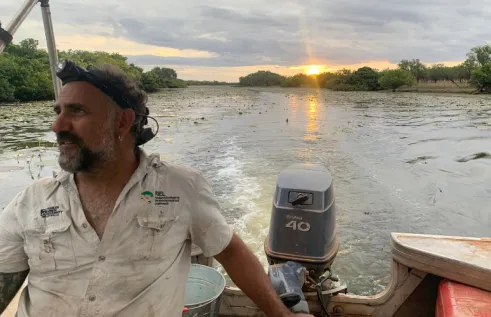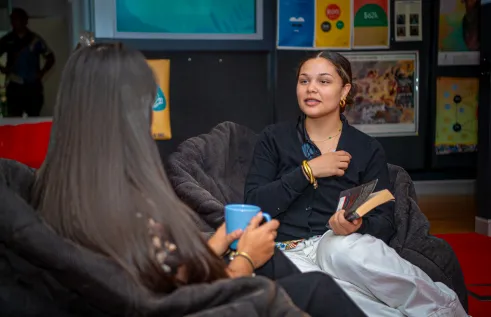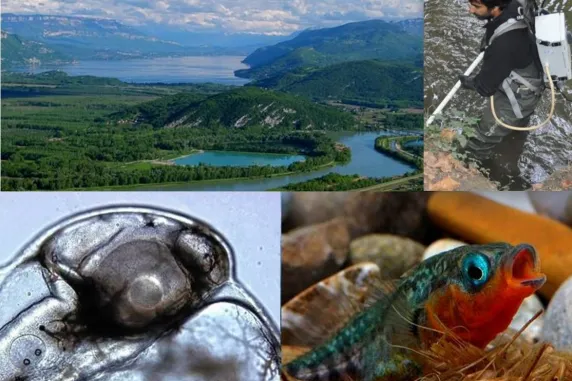Trends in European freshwater fish populations and implementation of ecological risk assessment methodologies in monitoring programs
| Presenter | Dr. Raphael Santos | |
|---|---|---|
| Date/Time |
to
|
|
| Contact person |
Fiona Quintner
|
|
| Location | Yellow 1.1.39 and via zoom | |
| Open to | Public | |
Data collected and analysed through environmental monitoring programs bring crucial information to science-based conservation programs and environmental policies.
Through this presentation, the audience is invited to journey to Europe to understand how ecological risk assessment approaches are useful for designing monitoring programs and collecting relevant data for environmental management and policy making.
Here, Raphael will discuss his research investigating freshwater fish population dynamics and what demographic and ecological traits are correlated with declining populations. Raphael will also discuss results from his previous research assessing the effects of anthropic pressures on aquatic species, such as water pollution by micropollutants. To illustrate that these approaches could be extended to various species, he will take the audience to visit seabird nesting sites on the Mediterranean shore, to determine if nesting in contaminated areas has an impact on seabird’s progeny.
About the presenter
Dr. Raphael Santos is an aquatic biologist who specialises in conservation biology and ecotoxicology. He combines laboratory investigations, field experiments and large-scale data analyses to understand the effects of multiple pressures on aquatic species. After completing his PhD in aquatic ecotoxicology in 2013 (INERIS/University of Lyon), Raphael worked in close collaboration with environmental managers in France and Switzerland through several postdoctoral projects in conservation biology and ecological risk assessment (CEFE/CNRS/Hepia/OFB). More recently, Raphael has analysed national datasets from European monitoring programs to investigate freshwater fish population dynamics and causes of population decline.
Related Events

STATE OF THE DIS-UNION: Media Literacy in the age of AI
The CDU Library is hosting a free panel discussion featuring Northern Territory journalists who will discuss media literacy, truth, and storytelling in the AI era. Attendees can learn how AI is transforming media, ask questions, and improve their understanding of navigating information in today's landscape.
Read more about STATE OF THE DIS-UNION: Media Literacy in the age of AI
Trophic dynamics of free-flowing tropical rivers
Colton Perna's PhD research explores how river flows and flooding shape freshwater fish communities in tropical rivers, using fatty acids to track how hydrology influences food webs and nutritional pathways. His findings highlight the critical importance of river flow and floodplain connectivity in sustaining productive aquatic ecosystems.
Read more about Trophic dynamics of free-flowing tropical rivers
Why Cross‑Cultural Communication Matters in Indigenous-focused Research
A cross‑cultural research partnership grounded in respect, shared knowledge, and educational equity. Discover how collaboration shaped a transformative PhD journey.
Read more about Why Cross‑Cultural Communication Matters in Indigenous-focused Research
